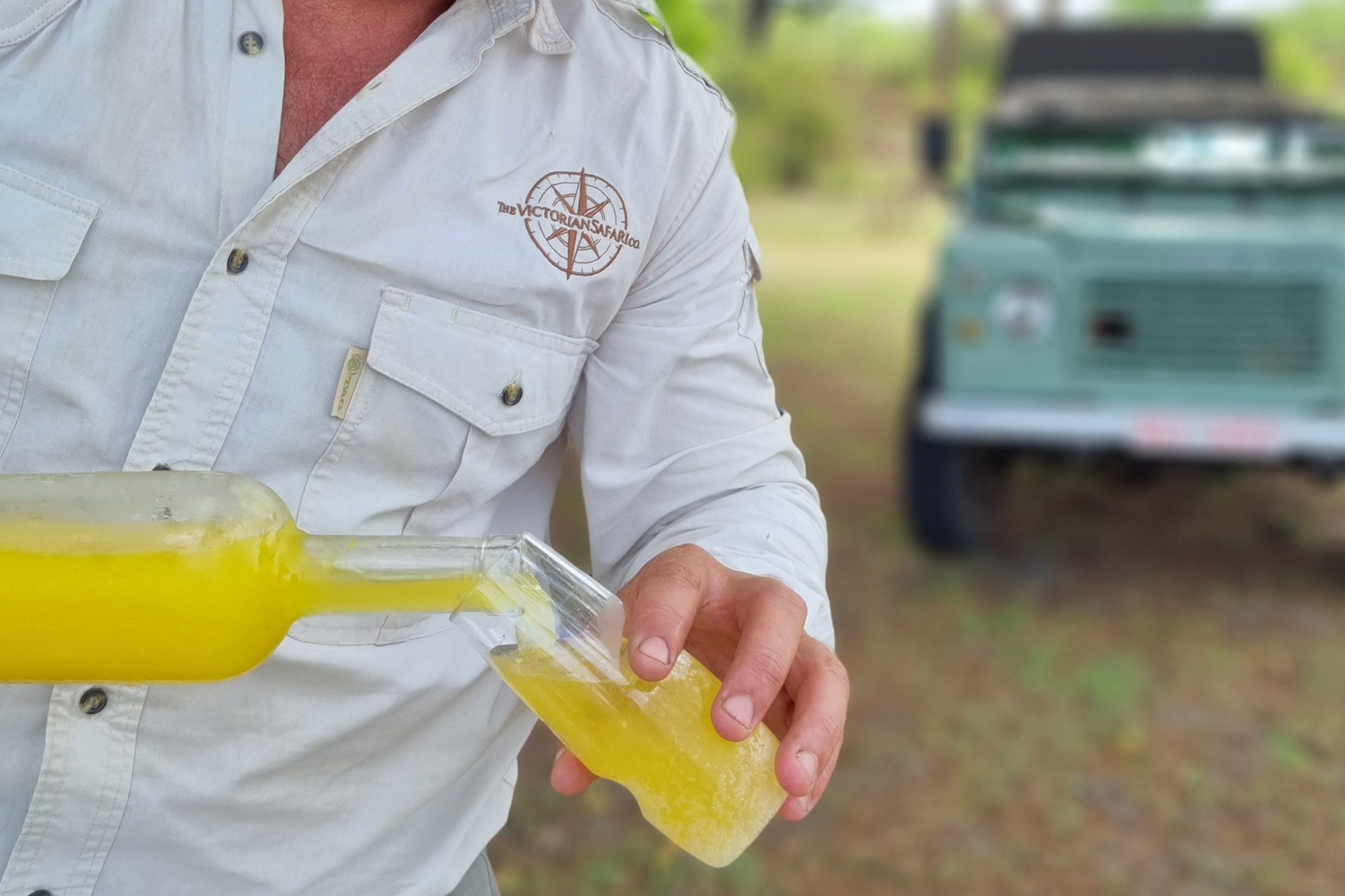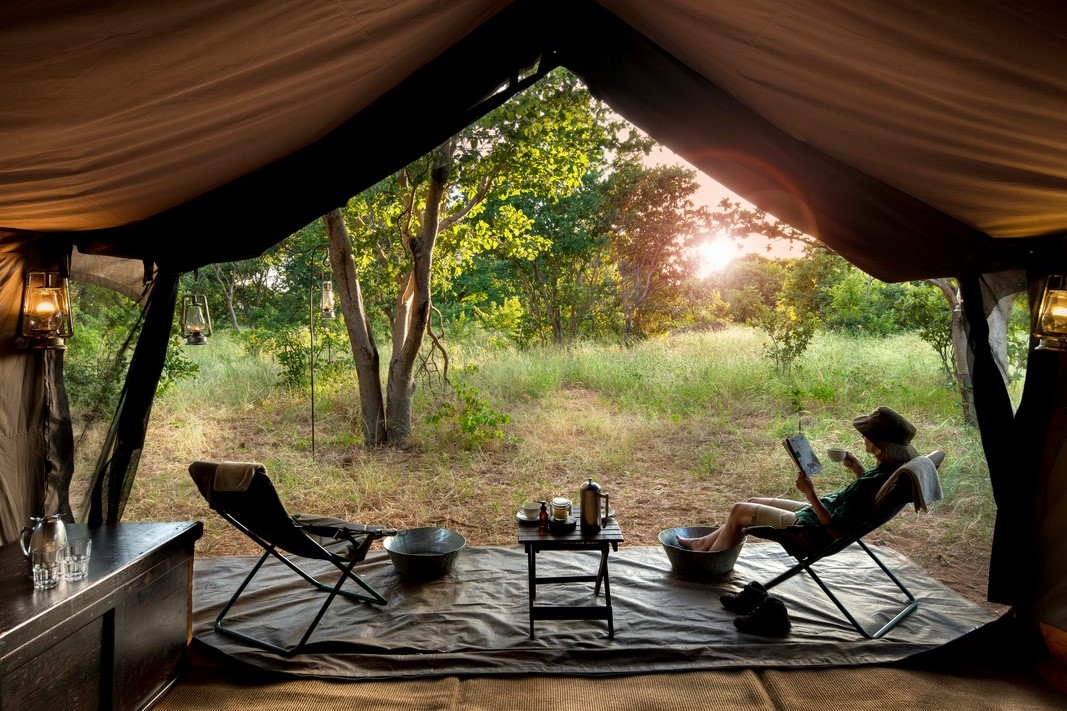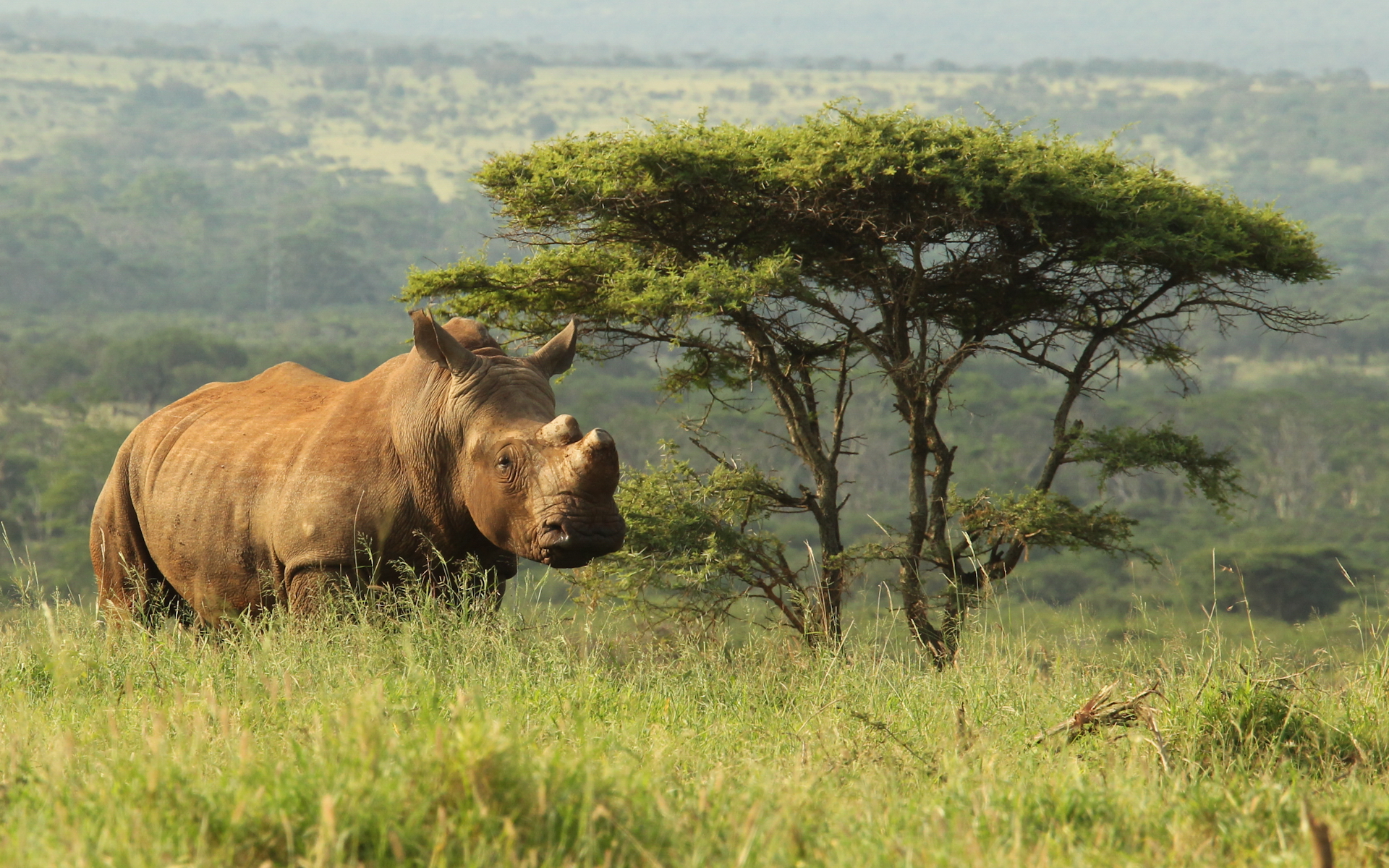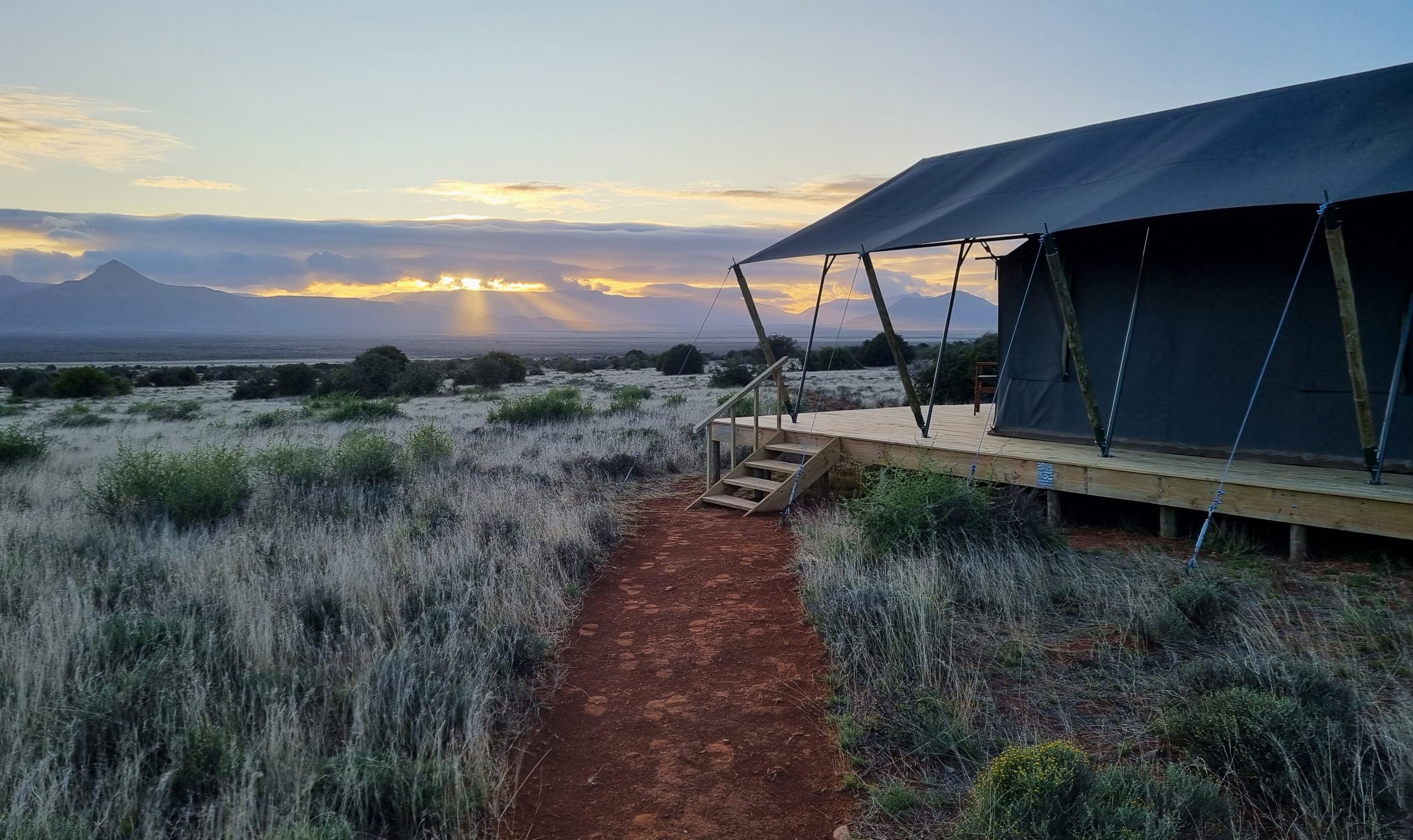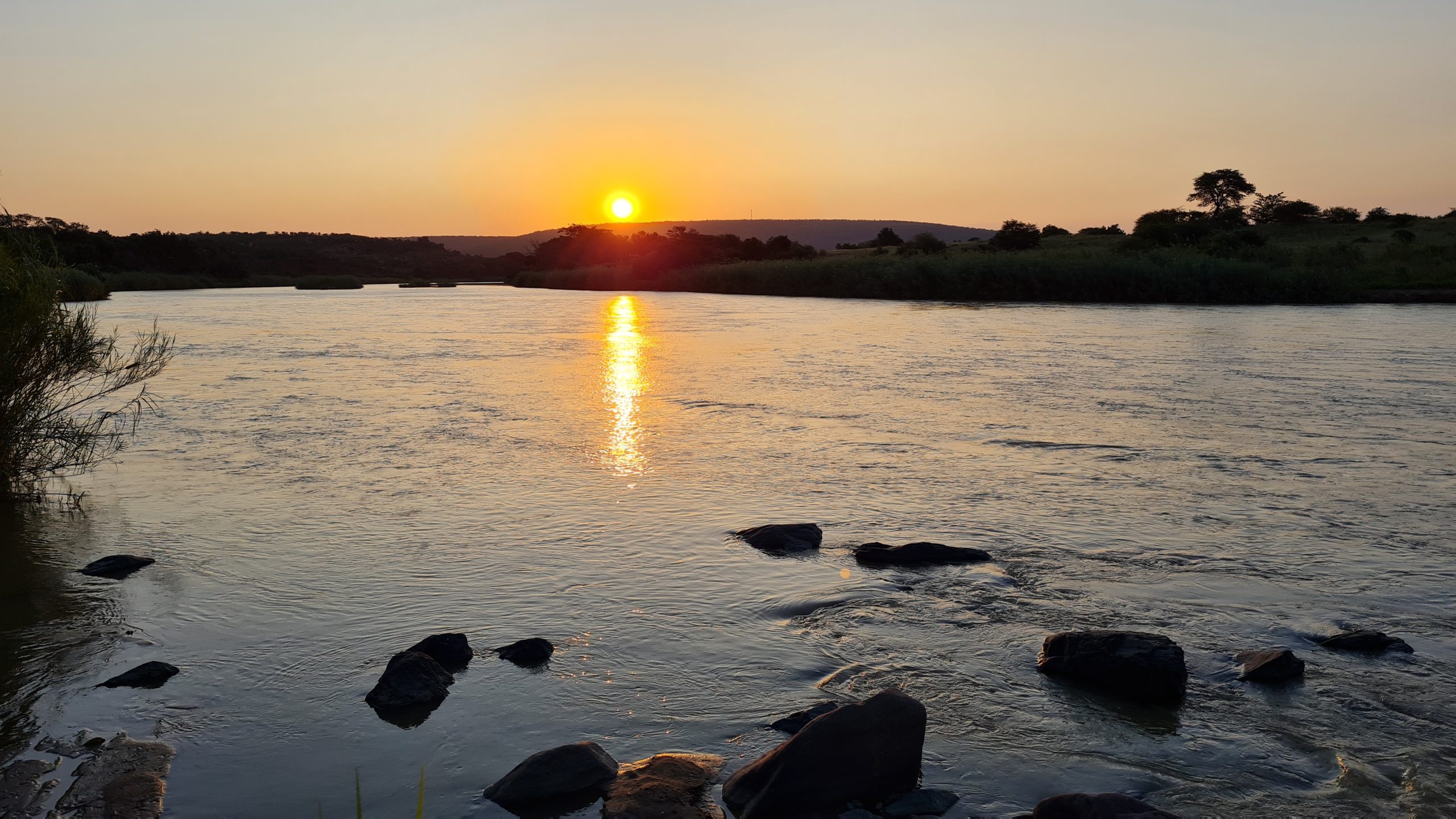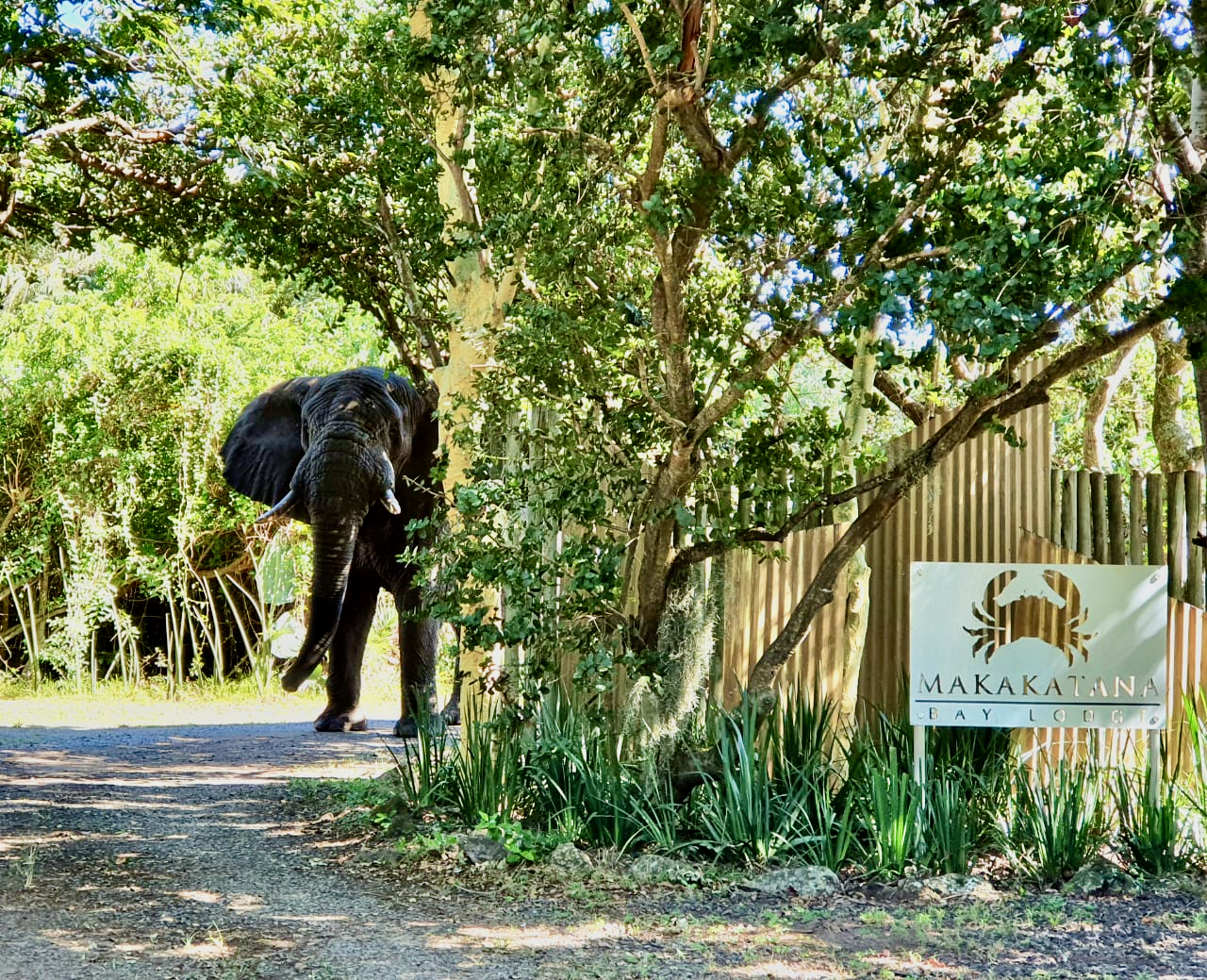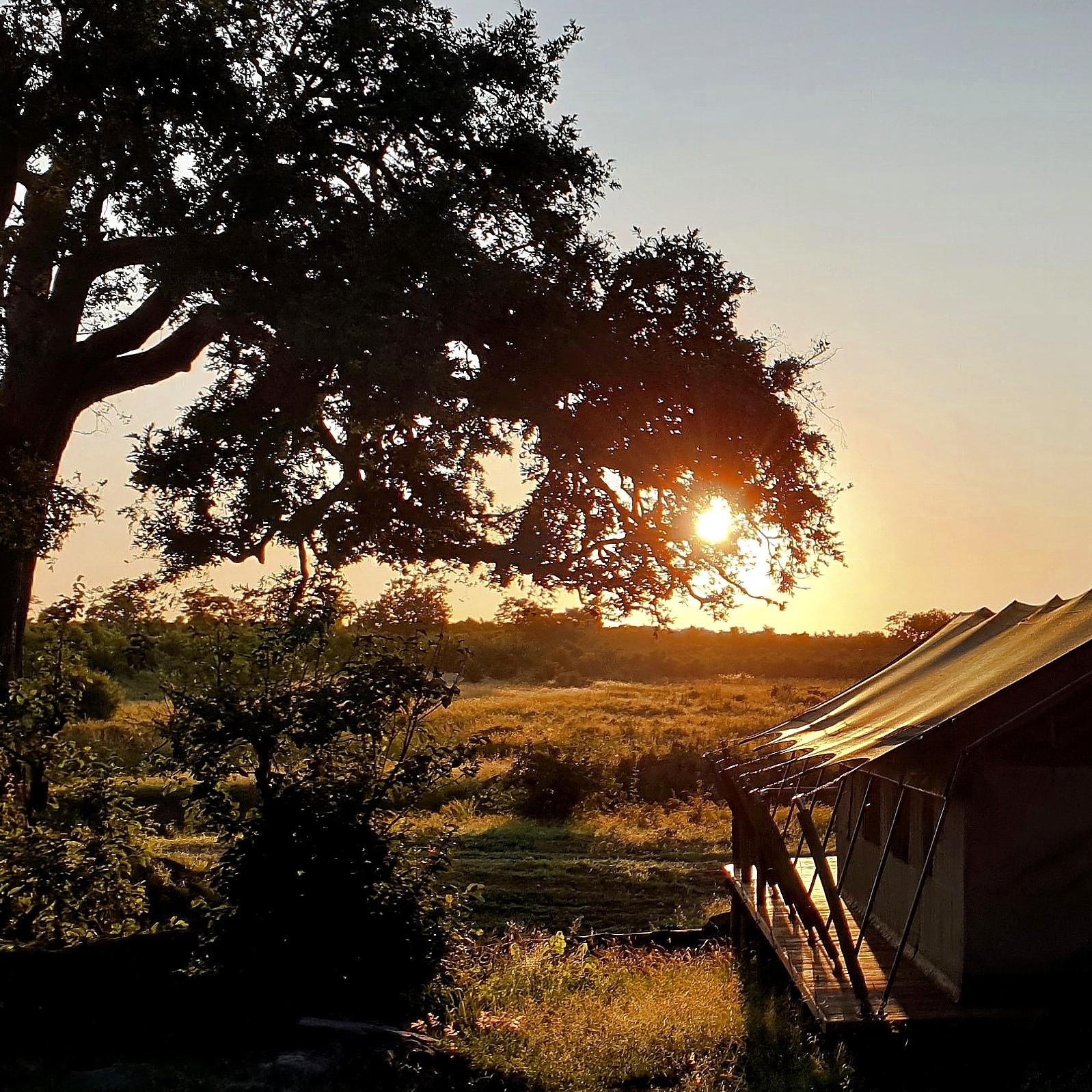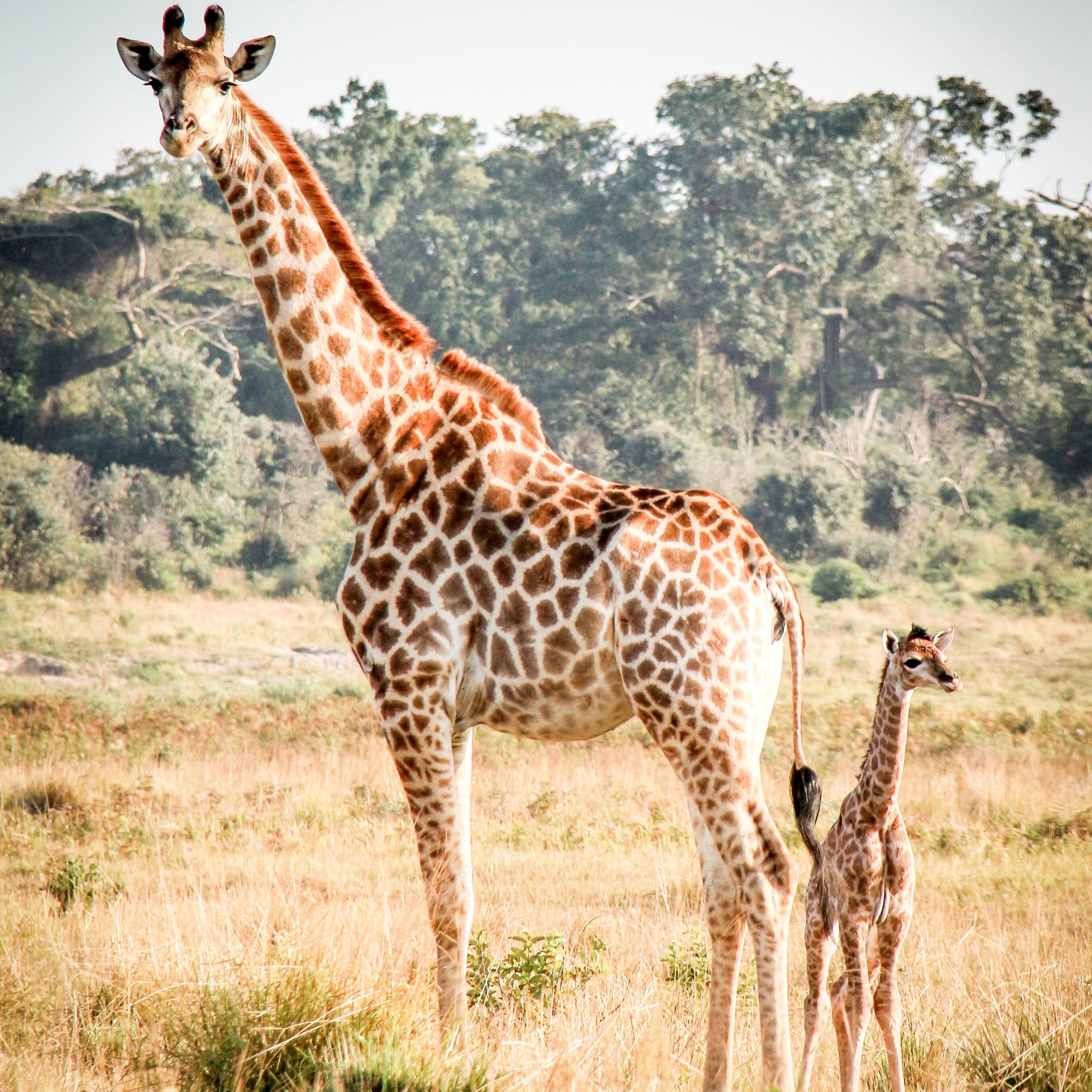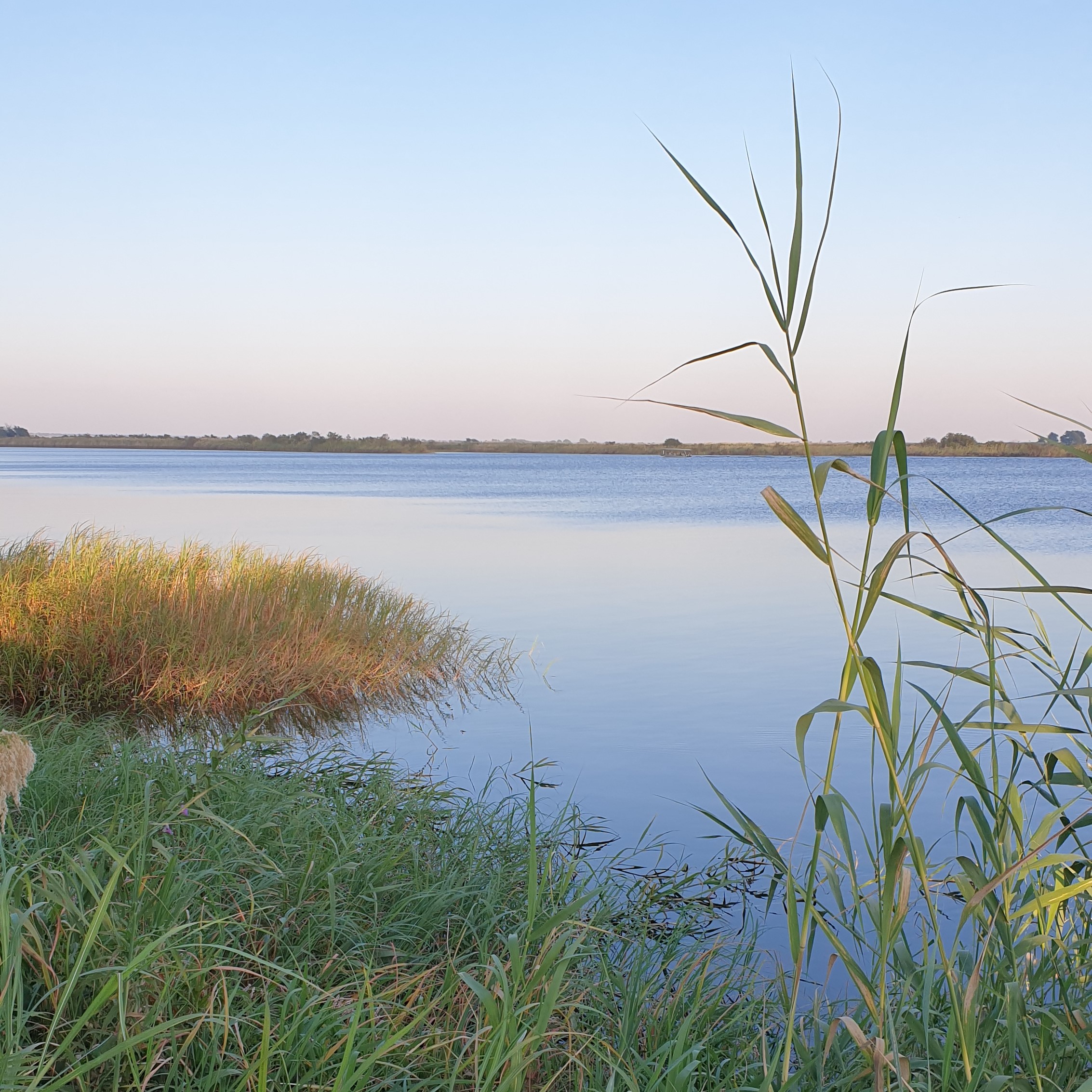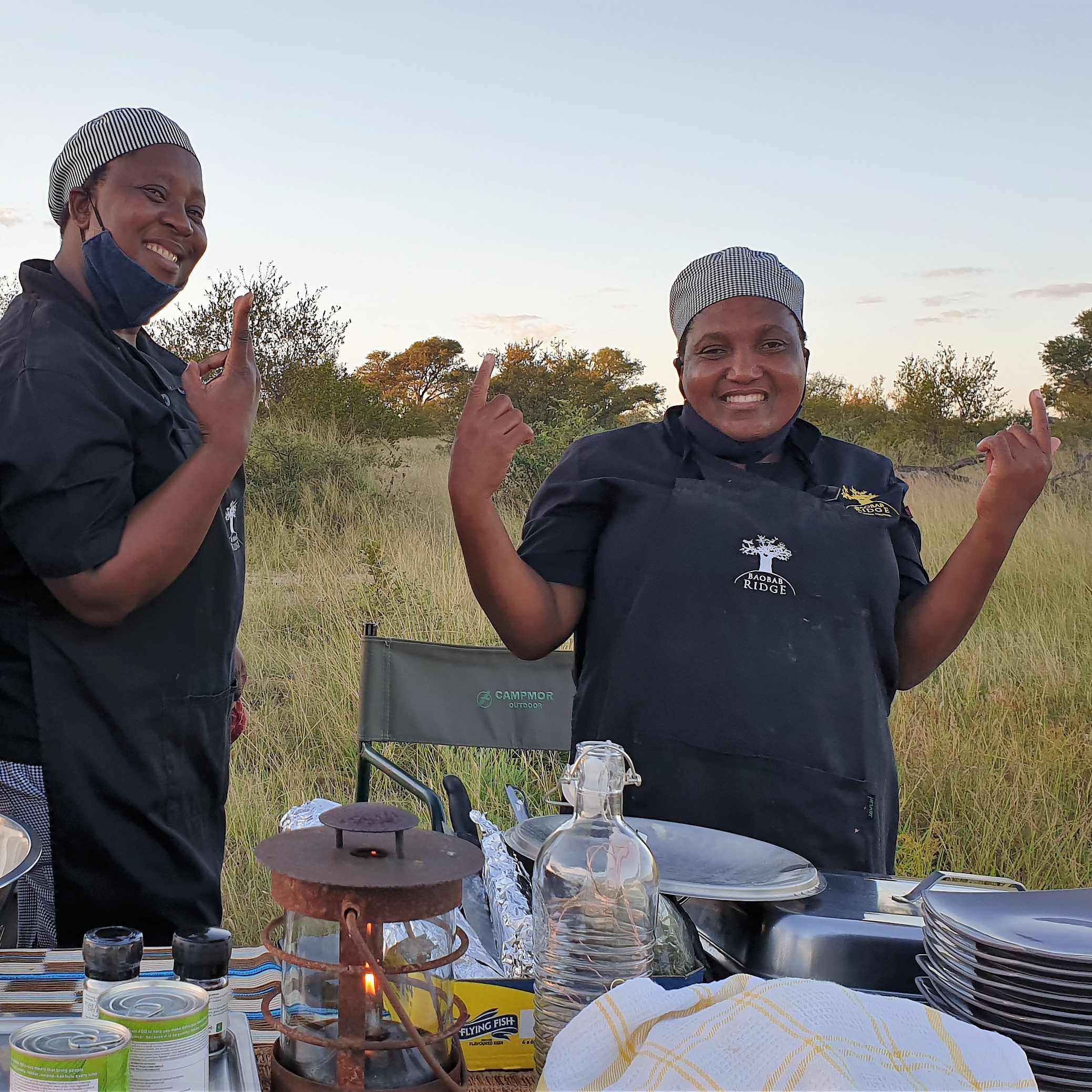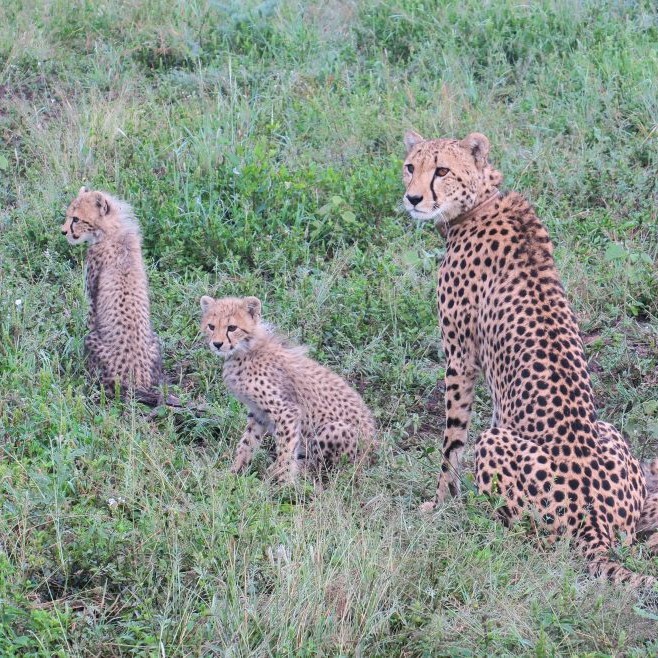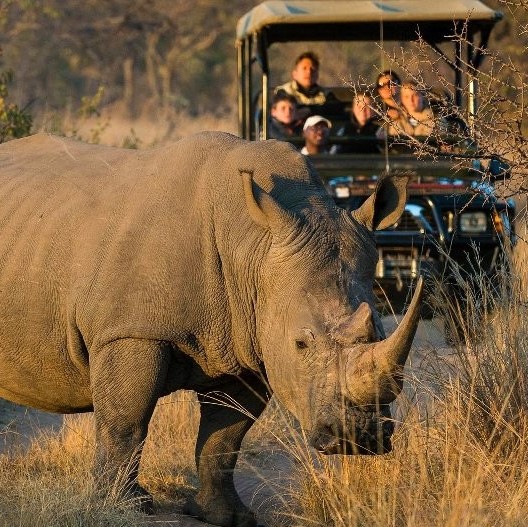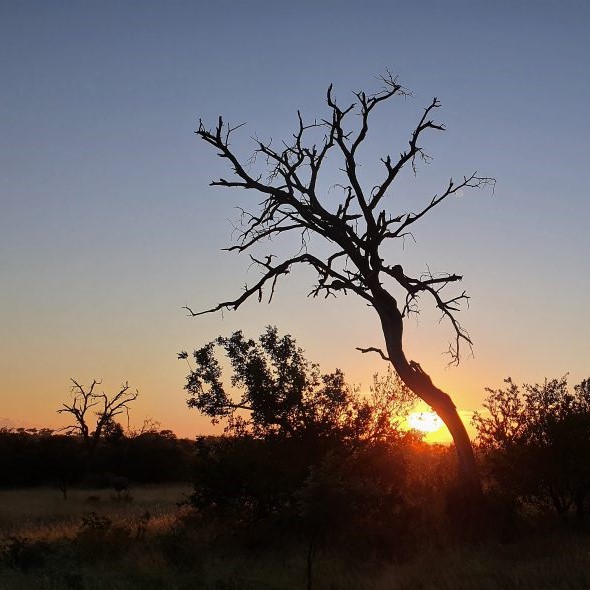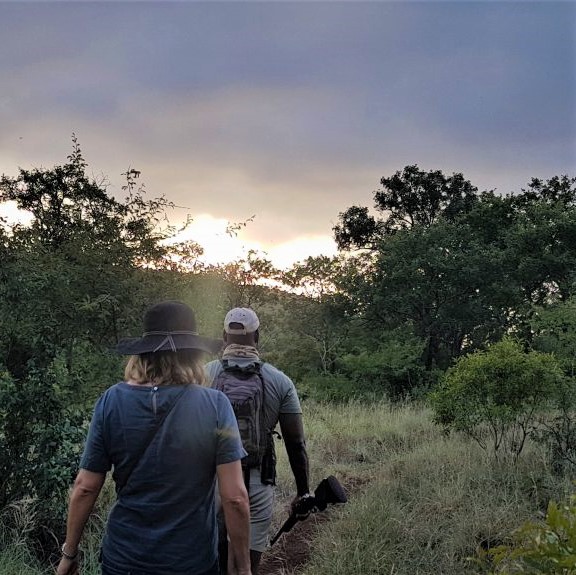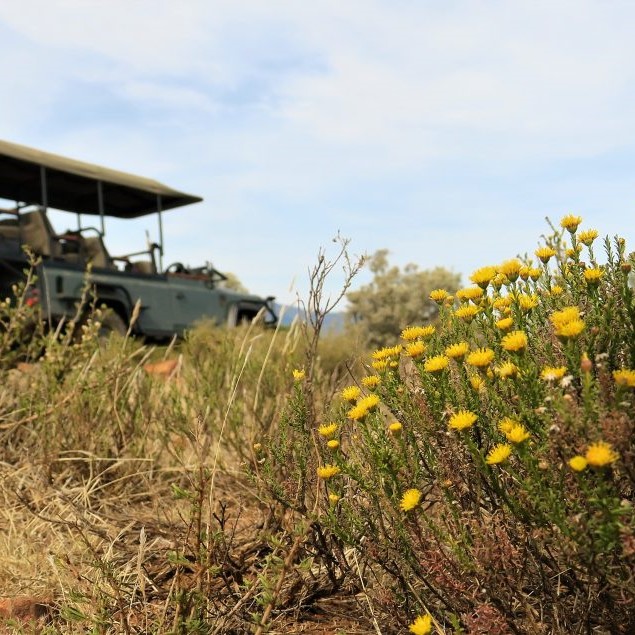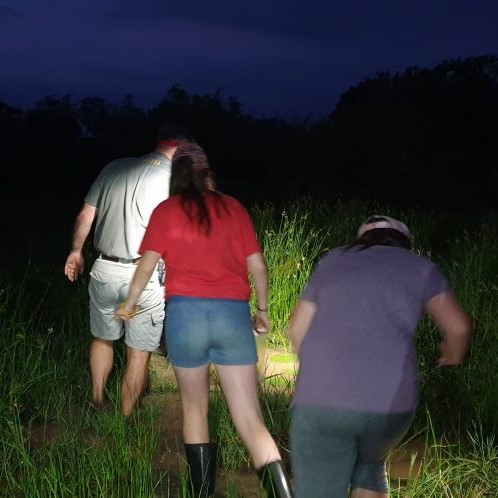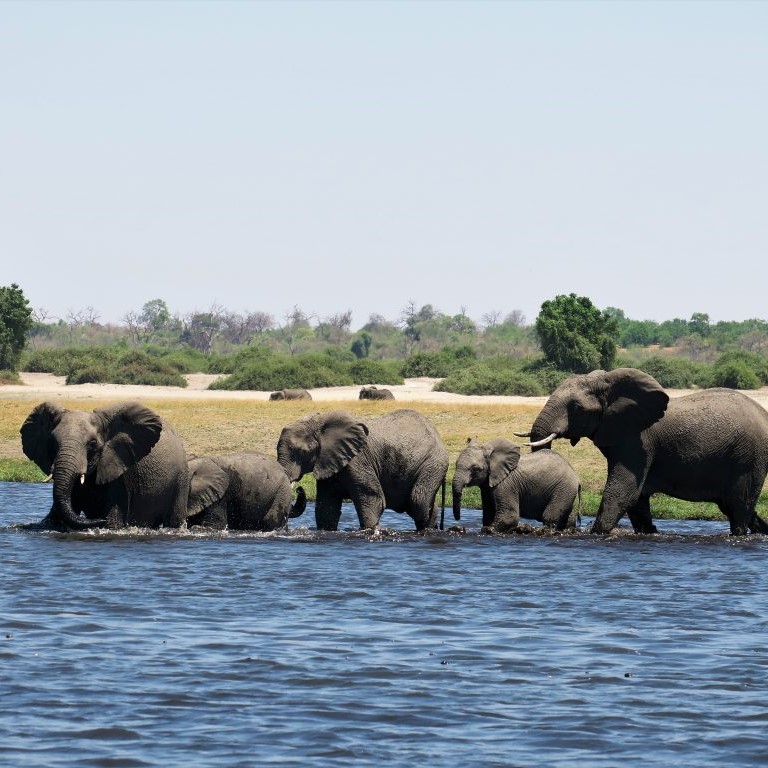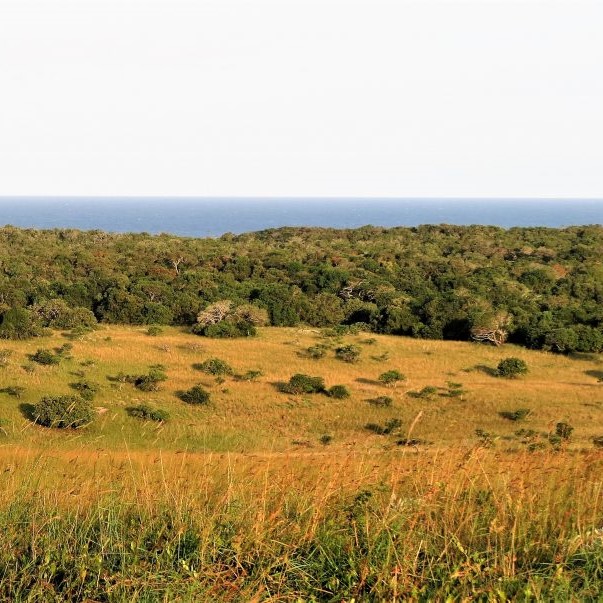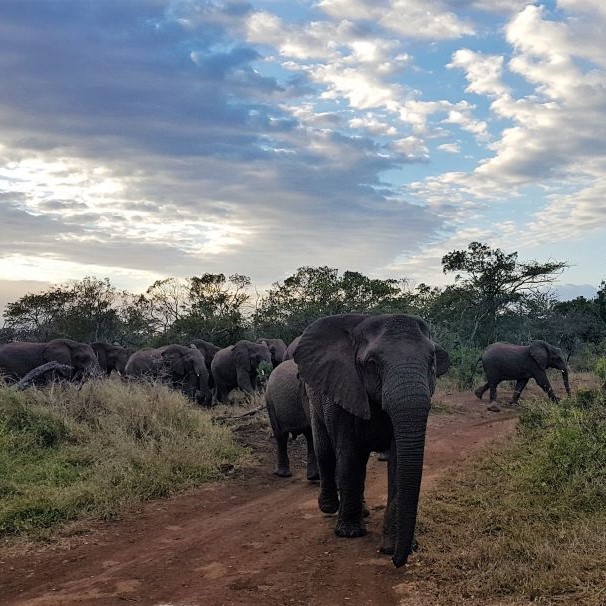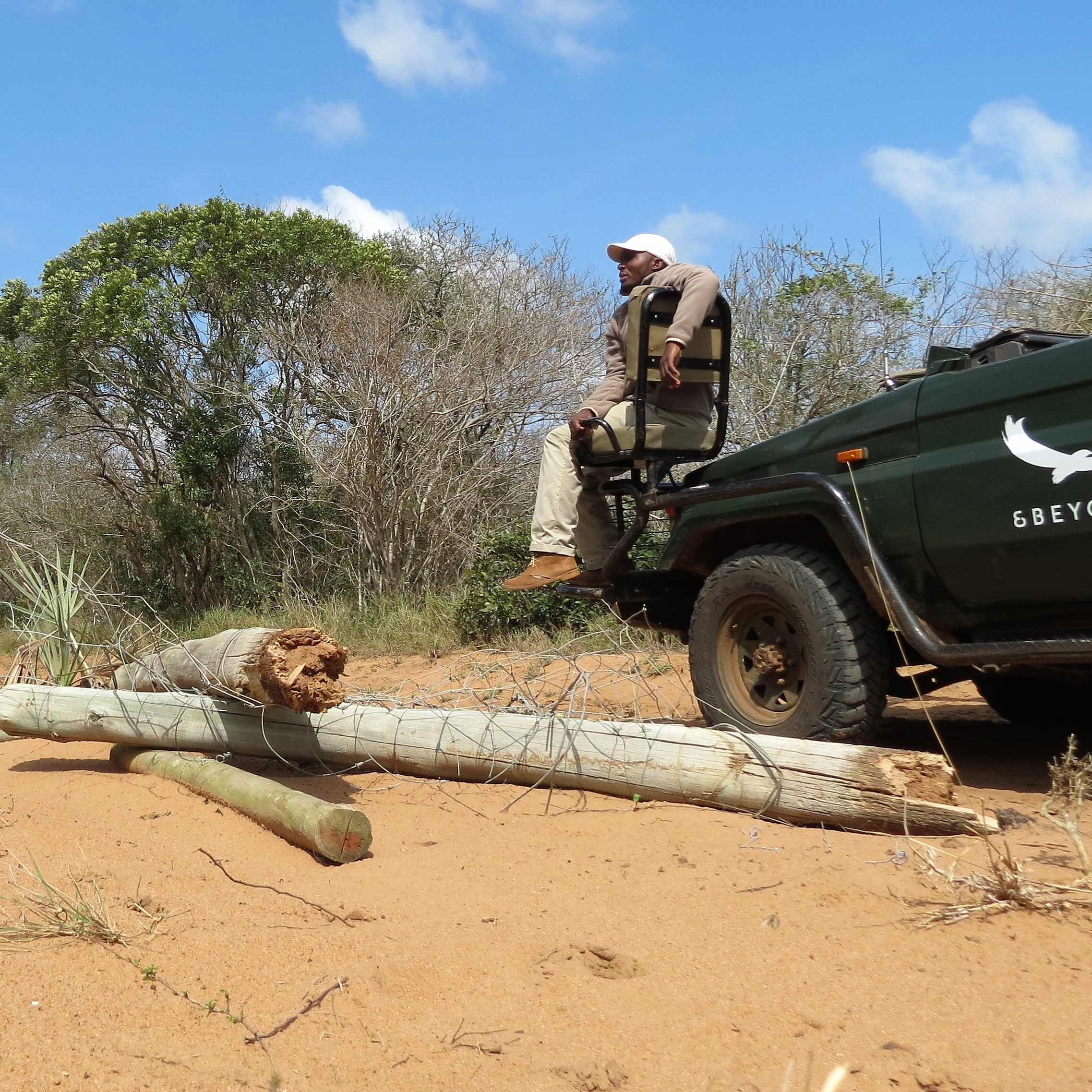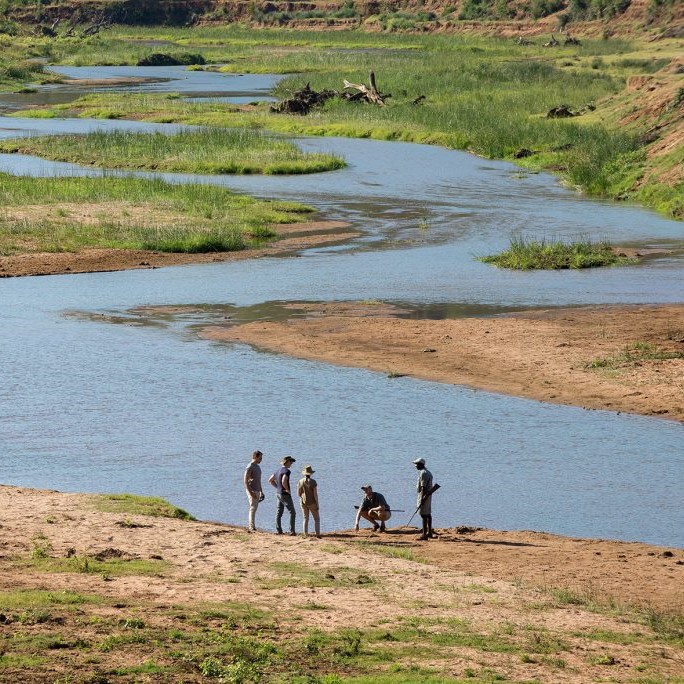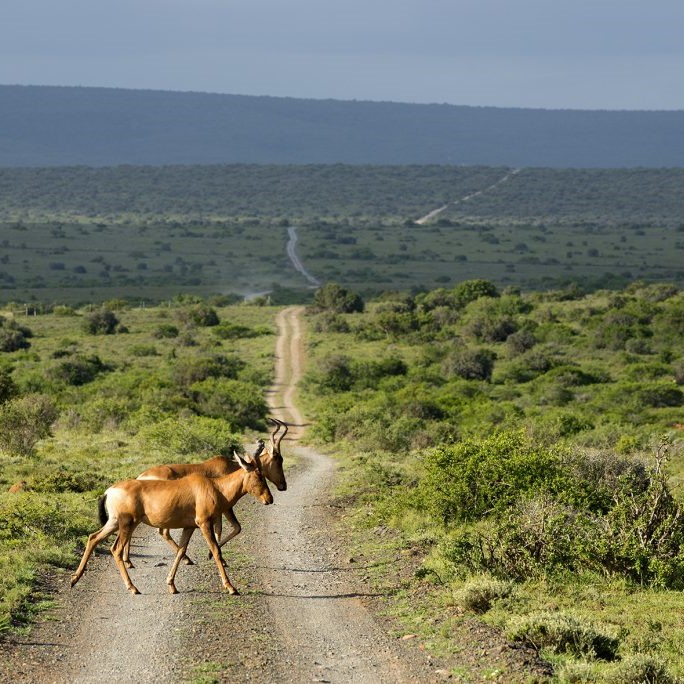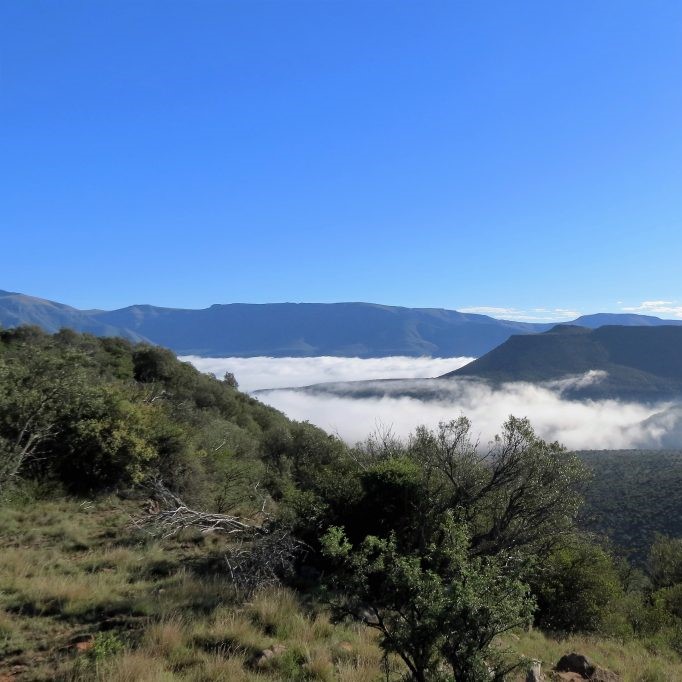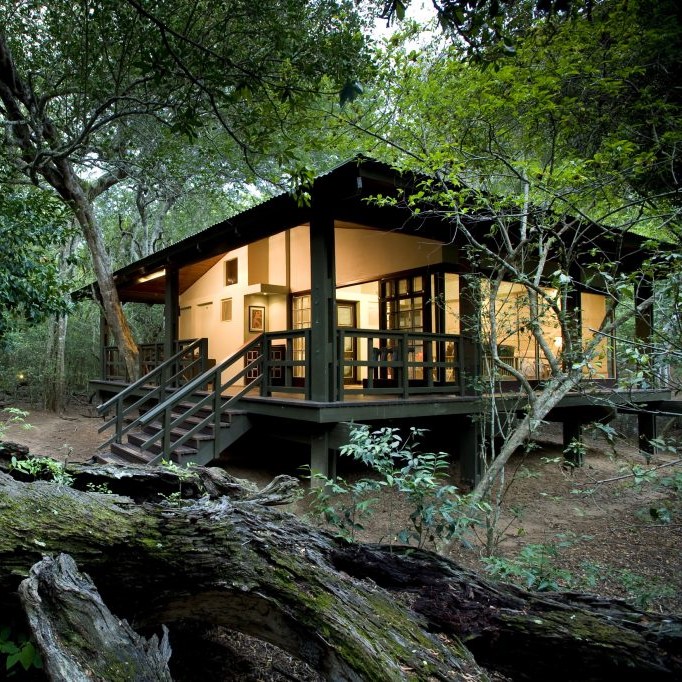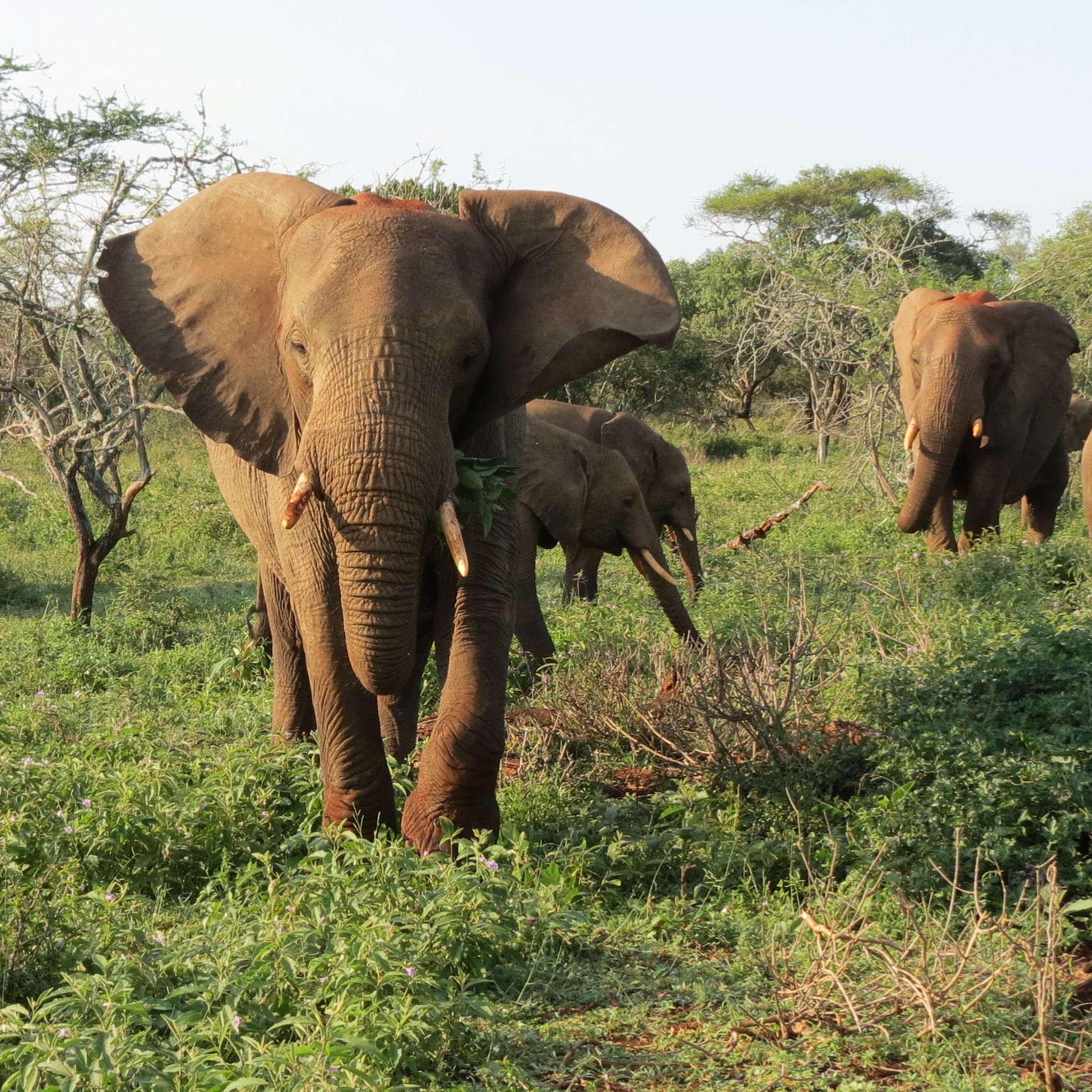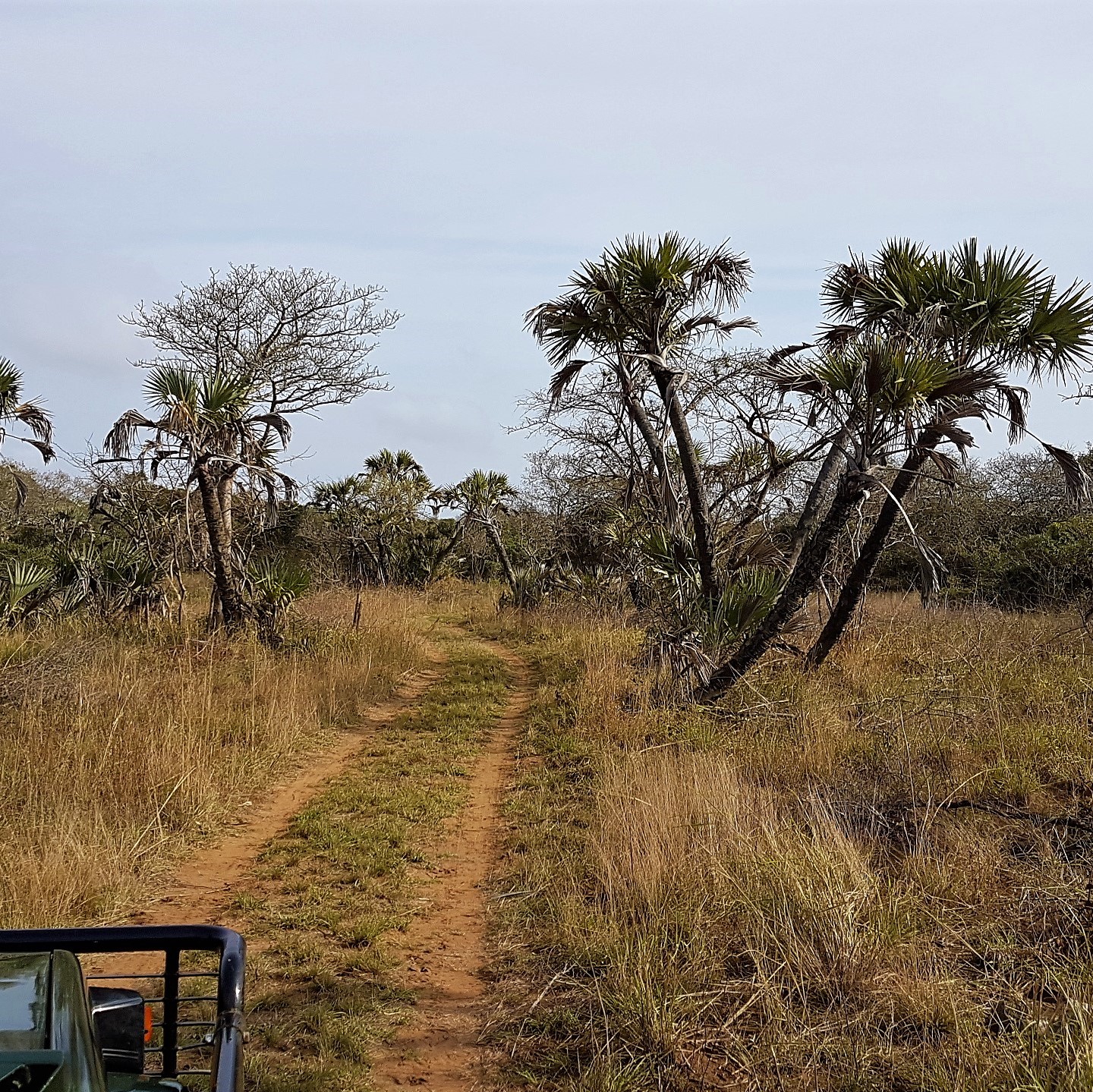Chobe National Park, one of the great wildlife destinations of Africa, has as its main geographical features the lush floodplains of the Chobe River and woodland areas of mahogany and teak, dense forests of mopane trees and endless broadleaf woodland. But it’s that first glimpse of the expansive Chobe River as it meanders its way though the wilderness that causes me to catch my breath in appreciation. I see pods of hippo, a few buffalo, up to their bellies in water, munching on the thick green grass that grows in swathes in the shallows. In the distance is a small herd of elephant, hopefully the first of many.
This park is famed for its massive elephant populations, big herds of buffalo, large prides of lion and incredible birdlife, but we’re visiting in the green season, when water is in abundance and the animal’s reliance on the life-giving water of the Chobe at an all-time low. We don’t mind though, as it’s the famed birding that we are looking forward to.
We are staying at the fabulous, five-star, fully Ecotourism-certified Chobe Game Lodge, with its distinctly Moorish architecture with impressive arches and expansive interiors, set within a lush ‘wild’ garden with towering indigenous trees alive with bird sounds. And the 250m long elevated boardwalk and deck made from recycled plastic, offers expansive views over the Chobe River. Being the only permanent game lodge situated within the Chobe National Park, guests have the privilege of getting out into the park and hour before any other visitors, ensuring the best opportunities to follow tracks and often the bests sightings too.
Additionally, there are the luxurious rooms and comfy lounge areas, the deliciously cool swimming pool, and the scrumptious food – from delicious breakfasts, the yummiest cappuccinos, and cocktails (served with paper straws), to the finest of dining and most decadent of desserts.
But perhaps the best part of all is the opportunity to glide along the Chobe River quietly in one of the solar-powered boats, or manoeuvre through the bush in relative silence in one of their fleet of electrically-powered vehicles.
After a light lunch and lengthy conversation with Jonathan Gibson, Chobe Holding Ltd. Group CEO and Deputy Chairman (more about that later), we head down to the jetty for a late afternoon river cruise. Our guide Oriah, one of 19 in the all-female guiding team, knowing that we are interested in birding, keeps the boat close to the shoreline… we see a double-banded plover, with its beautifully red-ringed eye one the river’s edge, and a pair of white-fronted bee-eaters flitting around in the air in search of insects. The day is warm, the surrounding lush and green, the river a deep indigo-blue ribbon winding its way through the floodplain.
We drift quietly in the current, the cry of a fish eagle pierces the silence, a sound that for me epitomises Africa. The benefit of the electric boats, even with the electric motor running, is that they are relatively silent enabling you to get much closer to birds and other wildlife from the water – a definite bonus for photographers. A pair of yellow-billed storks maintain their vigilant search for fish, oblivious of our presence, a malachite kingfisher pierces the water at speed, coming up to perch on an overhanging reed with a dragonfly nymph in its beak, and a puku peeks its head out of the thick reeds.
In the distance, along the treeline we see a herd of elephant emerge from the trees, we wait anticipating them to make their way to the river’s edge, but they pause instead at one of many pools now on the floodplain thanks to the rising water levels. Such is the nature of the green season. We don’t mind though as the waterbirds on the river’s edge keep us entertained – Egyptian geese, cormorants, darters, herons, lapwings and plovers.
The sky is turning a pinky-orange, the clouds a leaden blue, the setting sun a ball of orange, what better way to end a great afternoon on the river than with G&T’s and a spectacular sunset!
At Chobe Game Lodge when talking ‘electric-powered’, you aren’t just talking boats. Most of the game viewing vehicles now boast ‘eco’ internals, having had their diesel engines replaced with what looks to me like a mishmash of electronics (from my non-technical point of view) and a chunk of batteries. All of which makes for fabulously silent game drives which we get to experience early the next morning.
I hear leaves rustling as a gentle breeze moves through the trees, we drive in relative silence along the sandy track, enjoying the early morning birdsong. We are the first vehicle out this morning, and soon round a corner to wonderful sight. A pair of lionesses lying beneath a tree, we watch quietly. A cub emerges, then another and another. Soon we are watching the antics of a fairly large pride, around 20, including the cubs. Their bellies are huge, and Oriah tells us that they likely had a kill overnight. We watch as they amble in and out of the bush and through the grass, the cubs romping with one another in wild abandon. Then in the morning’s ‘golden light’, two of the lionesses and a cub pause nearby to quench their thirst at a water-filled depression.
Probably my best lion sighting ever… such a privilege!
A carmine bee-eater watches from the top of a nearby tree, a pair of ground hornbills march through the bush with intention, and a slender mongoose suns itself on the branch of a tree. I watch as a pair of red-billed hornbills collect leaves for the nest they’re creating in the hollow of a tree. Both game viewing and birding is a pleasure in an electric vehicle!
This idea of ‘eco’ vehicles started in 2010 when Chobe Game Lodge became one of the first properties in Botswana to be fully Botswana Ecotourism certified. Jump four years and they became the first electric-powered safari operator in Africa. Johan Bruwer, General Manager of Chobe Game Lodge, tells us that this was at a huge cost, especially in the early days when the technology was still new – but thankfully it is a little cheaper now and the next few years will see the last of the fleet (both game vehicles and boats) being converted from diesel to electric. ‘But it’s not about the cost’ he says, ‘it’s about doing the right thing’.
Johan introduces us to lodge environmentalist trainee, Vivian Diphupu, who leads us on the Back of House Eco Tour, ‘it’s a tour established for interested guests who want to see the recycling and composting facilities on the property’s premises’, Vivian tells us.
We learn about Chobe Game Lodge’s eco-initiatives, and from the rigorous Environmental Management Plan (EMP) that measures all aspects of operations – from energy consumption (fuel, generator, electricity as well as biogas and LPG), water consumption and grey water output as well as waste management (food waste, recycling and municipal waste) to the sourcing of local products, from local suppliers to the 600 square meters of solar panels on the back-of-house roofs that generate 104 Kwh of electricity at peak performance.
I learn that the awesome shower in my room is heated by solar water heater panels and that the wastewater captured by the closed septic tanks are then treated in the Lodge’s own above ground sewage treatment plant. The grey water is treated by a natural anaerobic process that purifies and cleans up the grey water, which then flows into ozone tanks where any harmful bacteria that remain are killed. This fully processed water is then mixed with river water to irrigate the gardens. No wonder they look so lush and green!
At the recycling centre we watch glass being prepped for the glass pulveriser, where it will be reduced to the consistency of course sand and then used to make bricks for use in building projects. Blocks of crushed cans await recycling as do bags of plastic water bottles, that will be collected by their mineral water supplier, to be recycled and re-used. Cardboard boxes and polystyrene punnets are separated and cleaned ready to be returned to their main fresh and frozen goods supplier. We learn that food waste from the kitchen is bagged and then sent to the onsite Biogas Plant where it is processed and fed into the two biogas reactors to produce the methane gas used for cooking in the staff canteen. Any combustible materials that cannot be re-used or recycled are incinerated onsite and the ash used as a fertiliser for the lawns.
Vivian tells us that most of their staff are recruited locally to ensure additional benefits to the community of Kasane. She adds that Chobe Game Lodge is committed to employing female staff, especially in the Guiding Department, offering them opportunities to work and excel in a predominantly male dominated field – this she says proudly, having been in the position of head guide until relatively recently. She introduces us to Florence Kagiso, Chobe Game Lodge Senior Guide. Flo, as she is affectionally called, tells us that she joined Chobe Game Lodge in 2007 and was Desert & Delta’s very first female guide in a team of men. Which she says laughing, ‘was quite challenging for them!’
Chobe Game Lodge was built in the 1970s and once completed it was one of the first 5-star luxury lodges in Botswana. Its distinctly Moorish architecture with impressive arches and expansive interiors, plus its location within the Chobe National Park was a definite drawcard, with its famous guests having included Elizabeth Taylor and Richard Burton, who married there (for the second time) in 1975.
The lodge was closed in 1977 due the Rhodesian bush war and reopened in 1984 after being purchased by business partners Jonathan Gibson and Ian Green. Fast forward numerous decades and this beautifully refurbished and eco-friendly Chobe Game Lodge is what we see today – albeit with a Covid-induced pause in between.
That evening we dine on an upstairs veranda, under the canopy of indigenous trees. The call of a fiery-necked nightjar interrupts the still of the night, and in the distance, we hear a hyena call. For me this is what an African safari is about, and one that captures the ethos of Chobe Game Lodge – nature, nurture and a wonderfully natural aesthetic.
